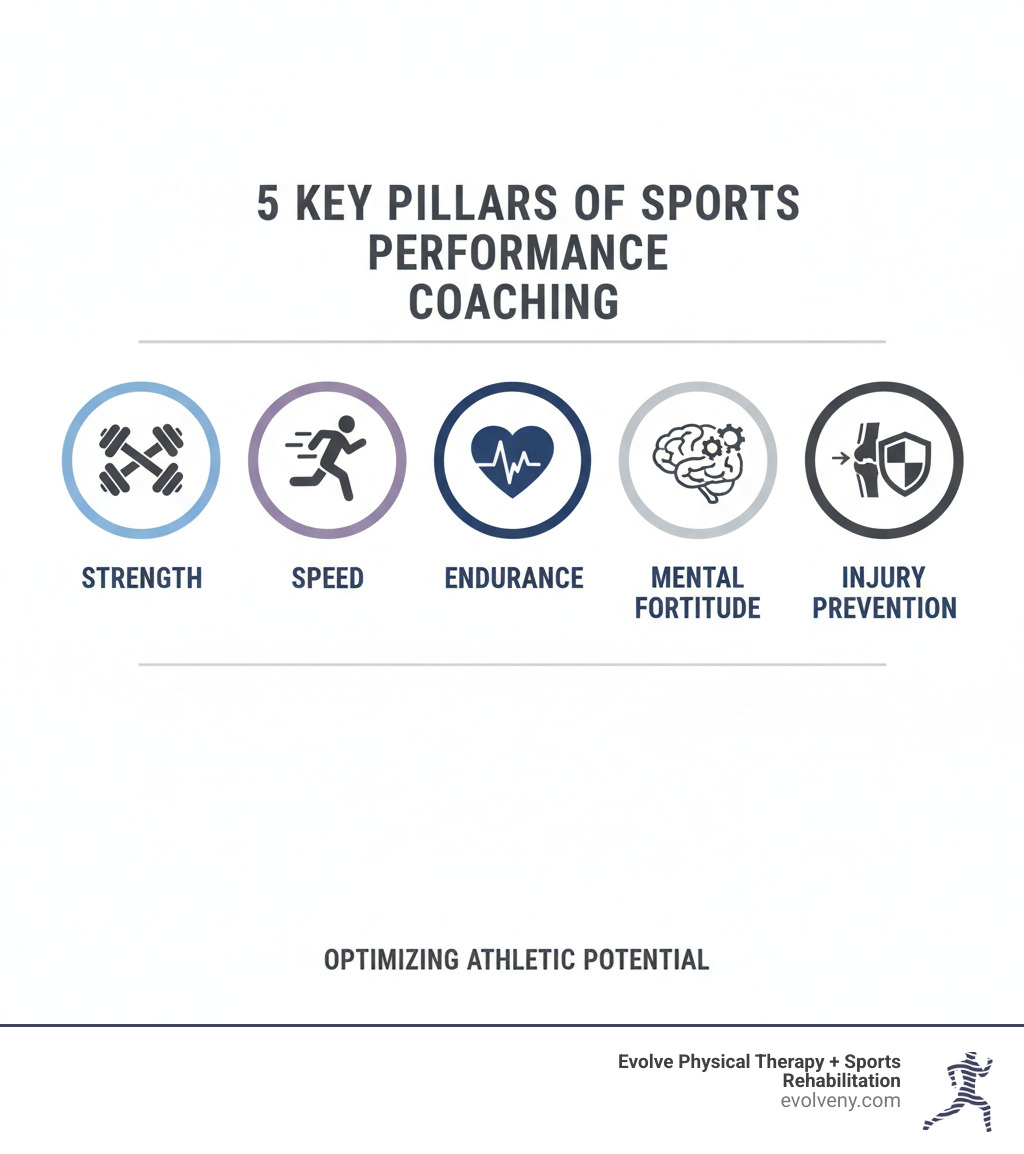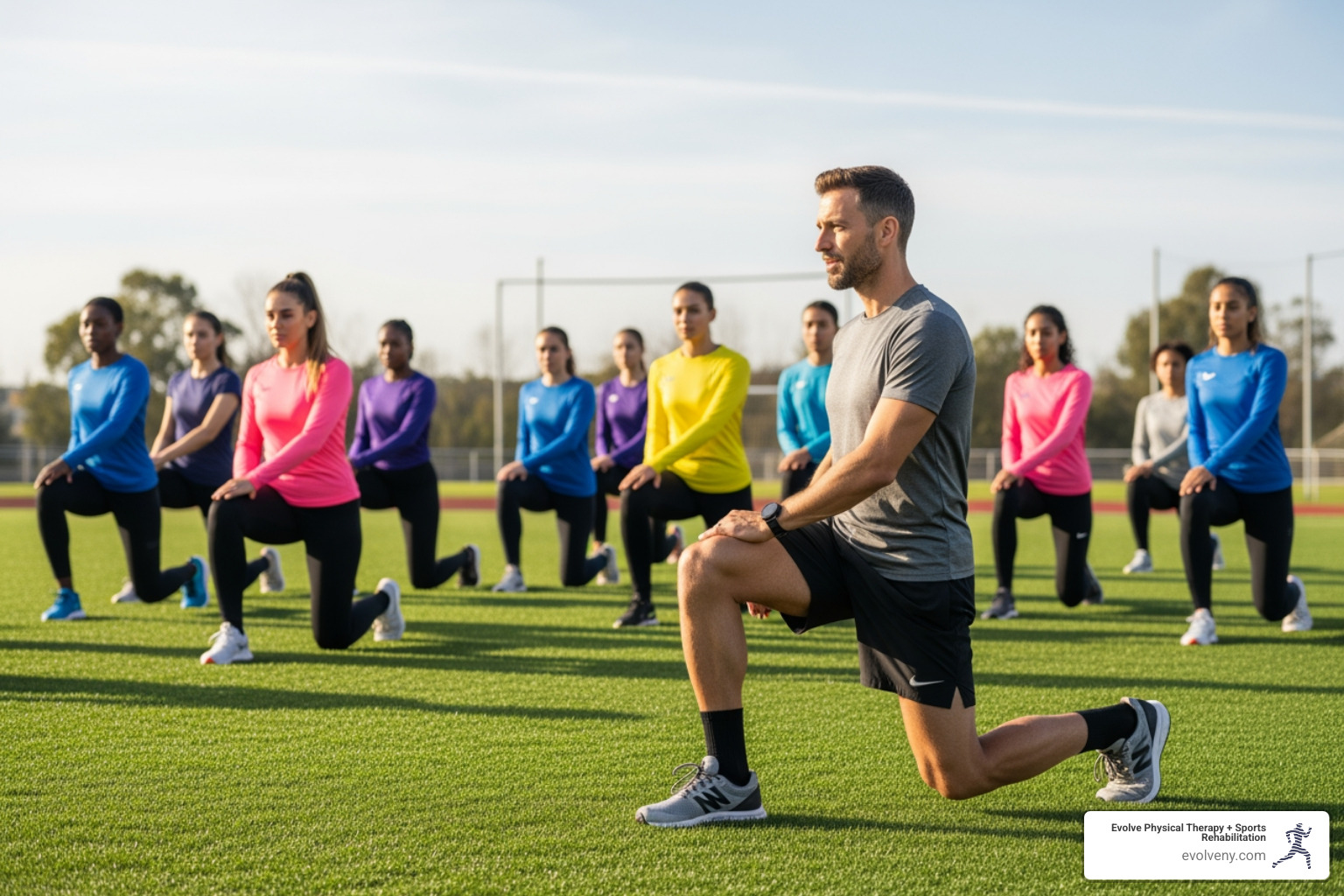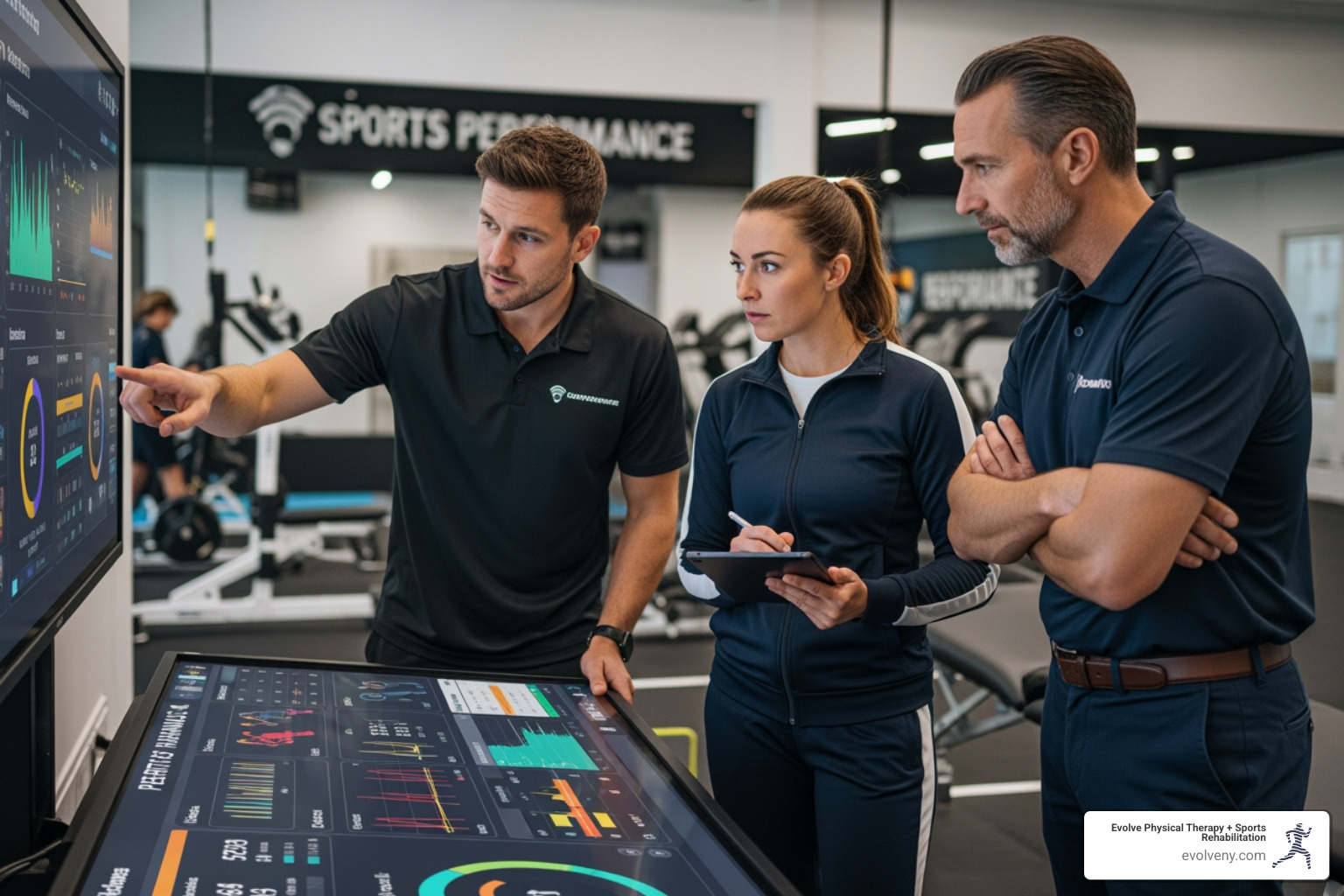Sports Performance Coach Duties Demystified
Understanding the Sports Performance Coach Job Description
Behind every elite athlete stands an often-overlooked figure: the sports performance coach. These professionals blend cutting-edge sports science with motivational prowess to transform raw talent into championship performance. A sports performance coach job description involves designing and implementing training programs to improve athletic performance, reduce injury risk, and develop lifelong fitness skills. They combine exercise science, biomechanics, and psychology to optimize athlete development at all levels.
Key Responsibilities:
- Design sport-specific training programs (in-season, off-season, pre-season)
- Monitor athlete performance and adjust programs based on progress
- Educate athletes on proper lifting techniques and injury prevention
- Collaborate with athletic trainers, nutritionists, and sports medicine staff
- Track athlete progress against key performance indicators (KPIs)
- Ensure compliance with NCAA, conference, and organizational regulations
Required Qualifications:
- Bachelor's degree in Kinesiology, Exercise Science, or related field
- Professional certification (NSCA-CSCS or CSCCa-SCCC)
- CPR and First Aid certification
- 2-5 years of coaching experience (depending on level)
This guide breaks down what a sports performance coach does, the qualifications required, and how they contribute to athlete success. We'll cover the daily realities of the profession and the career path from assistant coach to director-level positions.
I'm Lou Ezrick, founder of Evolve Physical Therapy + Sports Rehabilitation, and over nearly two decades I've worked alongside sports performance coaches to rehabilitate athletes and optimize movement. Understanding the sports performance coach job description is essential to my collaborative approach in helping athletes return to peak performance after injury.

What is a Sports Performance Coach? The Core Role and Responsibilities
Think of a sports performance coach as the architect behind an athlete's physical change. The primary role is to improve athletic performance while simultaneously reducing injury risk through a holistic, science-based approach. This isn't about quick fixes; it's about long-term athlete development, building a foundation that makes athletes faster, stronger, more resilient, and mentally tougher for years to come.
The Foundation: Athlete Assessment and Program Design
Before any training begins, we conduct a needs analysis—a comprehensive evaluation of an athlete's movement patterns, strength, weaknesses, and injury risks. A volleyball player's needs differ from a soccer midfielder's, and our assessments reflect that.
From this analysis, we design individualized training programs built around the athlete's goals and the athletic calendar. These programs are periodized:
- Off-season: Focuses on building foundational strength and addressing weaknesses.
- Pre-season: Training becomes more intense and sport-specific to prepare for competition.
- In-season: The goal shifts to maintaining strength and power while managing fatigue and prioritizing recovery.
Every exercise and recovery protocol is purposeful. We establish clear goal setting markers with each athlete, ensuring they understand the "why" behind their training, which builds buy-in and motivation.

The Engine: Performance Monitoring and Injury Prevention
A critical part of the sports performance coach job description is continuous monitoring and adaptation. We constantly track progress and make adjustments based on data and observation. Modern technology use has transformed this process, allowing us to measure power output, speed, jump height, and other metrics. This data analysis removes guesswork and allows for objective programming decisions.
Movement screening helps us identify dysfunctions before they cause injuries. When we spot an issue, we integrate corrective exercise protocols to improve mobility and stability. This proactive approach is fundamental to injury prevention.
Teaching and reinforcing proper technique is paramount. Improper lifting doesn't just reduce effectiveness—it can cause serious injury. We supervise every movement, provide real-time feedback, and educate athletes on safe progression. We also establish safety protocols for training facilities to create an environment where athletes can push their limits safely.
The Support System: Athlete Education and Motivation
Physical training is only part of the equation. Athlete education and mental development are equally crucial for long-term success. We provide nutrition guidance to help athletes understand how food fuels performance and recovery. We also teach recovery strategies, emphasizing sleep quality, active recovery, and stress management.
Building mental fortitude is where coaching becomes an art. We help athletes develop confidence, resilience, and focus under pressure. Effective communication ties everything together, creating the trust necessary for athletes to commit to challenging programs. We're teaching lifelong fitness skills. Athletic careers end, but the knowledge and movement competency we instill can last a lifetime, promoting active, healthy lifestyles long after competition.
The Official Sports Performance Coach Job Description: Qualifications and Skills
Becoming a sports performance coach requires a serious commitment to education, certification, and developing a unique mix of technical and interpersonal skills. The field is constantly evolving, so a dedication to ongoing learning is essential.
Essential Educational and Certification Requirements
A Bachelor's Degree in Exercise Science, Kinesiology, or a related field is the standard entry point, confirmed by the U.S. Bureau of Labor Statistics for collegiate or professional roles. This education provides the scientific foundation for understanding how the body responds to training.
A Master's Degree can open doors to higher-level positions, like director roles, by offering specialized knowledge in areas like nutrition, training methodologies, and sport psychology.
Professional certifications are non-negotiable. The two most recognized are:
- Certified Strength and Conditioning Specialist® (CSCS®) from the National Strength and Conditioning Association (NSCA), considered the gold standard.
- Strength and Conditioning Coach Certified (SCCC) from the Collegiate Strength and Conditioning Coaches Association (CSCCa), often required for collegiate jobs.
Finally, current CPR, First Aid, and AED certifications are universal requirements for ensuring athlete safety during training.

The Intangible Skills That Define a Great Coach
Degrees and certifications are vital, but personal qualities separate good coaches from great ones. The sports performance coach job description extends far beyond technical knowledge.
- Leadership: You must embody the discipline and work ethic you expect from your athletes.
- Communication: This is a critical skill. You need to translate complex concepts into simple terms, deliver constructive feedback, and listen effectively. The International Olympic Committee identifies this as a key trait of Qualities of a great coach.
- Empathy: Understanding an athlete's background and pressures allows you to know when to push and when to back off, building essential trust.
- Analytical Mindset: You must evaluate performance data, identify patterns, and make evidence-based decisions to ensure your programs are effective.
- Problem-solving: From athlete plateaus to equipment issues, you need creative solutions to overcome daily obstacles.
- Adaptability: Training plans change, and new research emerges. Flexible coaches thrive while rigid ones get left behind.
- Integrity and Passion: A genuine love for coaching and strong character create an environment where athletes are motivated to give their best.
At Evolve Physical Therapy + Sports Rehabilitation, we see how these intangible qualities directly impact athlete outcomes. The best coaches combine scientific rigor with genuine care.
A Day in the Life: Environments, Challenges, and Rewards
The life of a sports performance coach is demanding, with early mornings, late nights, and constant adaptation. However, for those passionate about helping athletes succeed, it offers unique rewards.
Where Do Sports Performance Coaches Work?
The sports performance coach job description is versatile, with opportunities in diverse settings:
- Collegiate athletics: A major employer, from large universities like Duke to smaller colleges, involving multiple teams and NCAA regulations.
- Professional sports teams: The pinnacle for many, working with elite athletes in high-stakes environments like the NFL, NBA, or MLB.
- High schools: A growing field as more schools hire dedicated coaches to ensure safe athlete development.
- Private facilities: Working with a diverse clientele, from youth athletes to adults, often in an entrepreneurial setting.
- Specialized centers: Including Olympic/Paralympic training centers or tactical settings with military and first responders.
A Typical Daily Schedule
A coach's day is long and varied. It often starts before sunrise (e.g., 5:30 AM) for a team's morning lift. The day is a mix of:
- Team Training: Supervising sessions in the weight room or on the field, coaching technique and managing energy.
- Individual Work: Providing one-on-one attention to athletes recovering from injury or needing specific skill work.
- Collaboration: Attending staff meetings with head coaches, athletic trainers, and sports medicine professionals.
- Administrative Tasks: Writing programs, analyzing performance data, managing equipment, and handling budgets.
Evenings may involve more training sessions or attending competitions. Travel for away games is also common, as noted in job descriptions like one from the Scottish Canoe Association.
The Highs and Lows of the Profession
Like any career, sports performance coaching has trade-offs.
The Rewards:
- Athlete Success: There's nothing like seeing an athlete achieve a goal you helped them reach, from earning a scholarship to setting a personal record.
- Team Camaraderie: You become part of a collective working toward a common goal, forming unique bonds.
- Tangible Results: You can directly measure improvements in strength, speed, and power, providing clear evidence of your impact.
The Challenges:
- Long Hours: The unsocial schedule, including early mornings, late nights, weekends, and holidays, can strain personal relationships.
- High Pressure: The stakes are often high, and coaches face scrutiny for injuries or performance plateaus.
- Job Instability: Positions can be tied to a team's success, leading to frequent changes.
- Physical and Mental Demands: The job requires being on your feet all day and managing diverse personalities and constant problem-solving.
Despite the challenges, most coaches find the rewards of making a measurable difference in people's lives to be worth it.
The Performance Ecosystem: Collaboration and Career Growth
Great sports performance coaches don't work in a vacuum. They are part of an interconnected support team—a performance ecosystem—where every specialist plays a vital role in athlete health and success.
The Integrated Support Team
Collaboration is key to changing good programs into great ones. As a coach, I'm in constant communication with:
- Head Coaches: To align training programs with the team's tactical vision.
- Athletic Trainers and Sports Medicine Staff: This partnership is critical for injury prevention, monitoring athletes, and coordinating return-to-play protocols.
- Nutritionists and Sports Psychologists: To optimize fueling strategies and build mental resilience.
At Evolve Physical Therapy + Sports Rehabilitation, we are a key part of this ecosystem. We provide specialized physical therapy for athletes that complements a coach's program. When a coach identifies a movement dysfunction or an athlete needs targeted rehab, we step in with hands-on treatment and corrective strategies to create a complete support system.

Measuring Success: Key Performance Indicators (KPIs)
Success in the sports performance coach job description is about measurable results. We track specific Key Performance Indicators (KPIs) to know if our programs are working:
- Athlete availability: Are athletes healthy and available for competition?
- Reduced injury rates: Shows that our prevention strategies are effective.
- Performance metric improvement: Measurable gains in strength, speed, and power.
- Team success: Our work contributes to the team's ability to compete at a high level.
- Athlete feedback and adherence: Qualitative data on confidence and whether athletes are following the program.
Your Path to Becoming a Sports Performance Coach
The journey is progressive, building from education to leadership roles.
- Education: Start with a Bachelor's degree in a related field; consider a Master's for advancement.
- Certification: Earn essential credentials like the NSCA CSCS or CSCCa SCCC.
- Experience: Gain hands-on skills through internships and volunteer work.
- Start as an Assistant: Most begin in assistant roles, learning from experienced mentors.
- Specialize: Focus on a particular sport, age group, or performance aspect to increase your value.
- Advance to Director: With 5+ years of experience, you can move into leadership roles, managing departments and budgets.
The U.S. Bureau of Labor Statistics projects strong job growth for coaches, though salaries vary widely by level and location.
Ethical Considerations and Best Practices
Ethical conduct is fundamental. Key principles include:
- Athlete Safety First: Every decision must prioritize safety to prevent injury.
- Scope of Practice: Know your professional limits and refer to other specialists (dietitians, psychologists) when needed.
- Confidentiality: Athlete data and personal information must be kept private.
- Anti-Doping Compliance: Stay knowledgeable about WADA/USADA rules and promote clean sport.
To clarify roles, here's a comparison between a Sports Performance Coach and an Athletic Trainer:
| Feature | Sports Performance Coach | Athletic Trainer |
|---|---|---|
| Primary Focus | Enhancing athletic performance through training—building strength, speed, power, endurance, and agility while preventing injuries. | Injury prevention, recognition, evaluation, immediate care, treatment, and rehabilitation of athletic injuries and illnesses. |
| Education & Certifications | Bachelor's or Master's in Exercise Science or Kinesiology; CSCS or SCCC certification. | Bachelor's or Master's in Athletic Training; Board Certified (BOC). |
| Scope of Practice | Design and implement training programs, teach proper technique, conduct conditioning sessions, perform performance testing. | First responder for injuries, clinical diagnosis, therapeutic modalities, rehabilitation exercises, emergency action plans, communication with physicians. |
| Collaboration | Works with athletic trainers, sport coaches, nutritionists, physical therapists, and sports psychologists. | Works with coaches, physicians, sports performance coaches, physical therapists, and parents. |
| Athlete Interaction | Guides training sessions, motivates athletes, educates on performance strategies. | Provides direct medical care, manages injuries, oversees rehabilitation protocols. |
| Key Contribution | Develops physical attributes for peak performance and builds resilience against injury. | Ensures athlete health and safety, facilitates safe return to play after injury. |
| Role with Evolve PT | We collaborate with sports performance coaches to ensure athletes are moving optimally and are physically ready for their training demands. | We work with athletic trainers by providing advanced physical therapy interventions for complex cases or when athletes need specialized rehabilitation beyond on-site capabilities. Our Brooklyn clinic serves as an excellent resource for athletic trainers seeking comprehensive rehab support for their injured athletes. |
Frequently Asked Questions about the Sports Performance Coach Job Description
What is the average salary for a sports performance coach?
While the U.S. Bureau of Labor Statistics reports a median salary of $38,640 for all coaches, this figure doesn't tell the whole story for this specific role. The salary range for a dedicated sports performance coach is wide.
Entry-level positions at smaller high schools or private facilities may be near that median. However, experienced coaches at major Division I universities or with professional sports teams can command six-figure salaries. Pay is influenced by several factors:
- Location: Coaches in high cost-of-living areas like Brooklyn, NY, typically earn more.
- Level of Competition: Professional and elite collegiate jobs pay significantly more.
- Experience and Expertise: Specialized skills can boost earning potential.
- Sport: Programs with larger budgets (e.g., football, basketball) often offer higher compensation.
Can you be a sports performance coach without a degree?
While technically possible in some private settings, it is practically very difficult and not recommended. Most legitimate sports performance coach job descriptions at the high school, collegiate, and professional levels require a Bachelor's degree in Exercise Science, Kinesiology, or a related field.
This requirement ensures you have the foundational knowledge of anatomy, physiology, and biomechanics needed to train athletes safely and effectively. Furthermore, major certifications like the NSCA CSCS require a bachelor's degree, making career advancement nearly impossible without one. If you're serious about this career, investing in your education is the best path forward.
What's the difference between a strength coach and a sports performance coach?
This question reflects the evolution of the profession. The term "strength coach" was the traditional title, focusing primarily on developing strength and power through resistance training in the weight room.
The modern title, "sports performance coach," signifies a more holistic and integrated approach. While strength training is still a core component, the role has expanded to include:
- Speed and agility training
- Sport-specific endurance development
- Proactive injury prevention through movement screening and corrective exercise
- Education on recovery strategies, nutrition, and sleep
- Analysis of movement efficiency and biomechanics
- Mental preparation to build resilience and focus
At Evolve Physical Therapy + Sports Rehabilitation, our physical therapy programs for athletes align with this comprehensive approach. In short, all sports performance coaches are strength coaches, but the modern role encompasses a much broader scope of responsibilities aimed at optimizing every facet of athletic readiness.
Conclusion: Building the Future of Athletic Excellence
The sports performance coach job description defines a dynamic and impactful career. These professionals are the architects of athletic excellence, blending science, psychology, and motivation to help athletes reach their full potential. From individualized program design to data-driven monitoring and collaboration with medical staff, they are integral to every aspect of an athlete's development.
The path requires a strong educational foundation, key certifications like the NSCA CSCS, and hands-on experience. But it's the intangible qualities—leadership, empathy, and passion—that truly define a great coach. While the hours are long and the pressure is high, the reward of seeing an athlete succeed is immeasurable.
At Evolve Physical Therapy + Sports Rehabilitation in Brooklyn, we are proud to be part of this collaborative ecosystem. Our specialized physical therapy programs for athletes complement the work of performance coaches by addressing biomechanical issues, optimizing movement, and ensuring a safe return to play.
Our hands-on approach means we partner with coaches to understand the unique demands of each athlete. If you're a coach in Brooklyn seeking a trusted partner in athlete care, or an athlete looking to optimize your capabilities, we invite you to connect with us. Together, we can build the future of athletic excellence—one breakthrough at a time.


